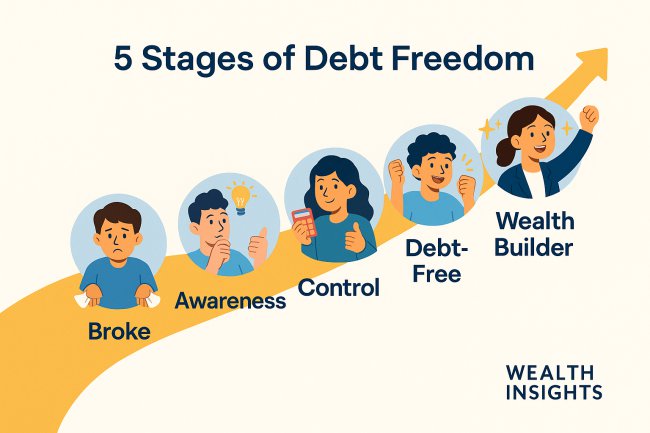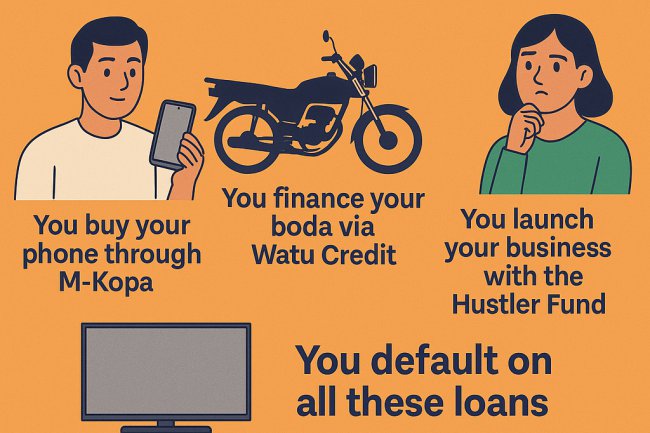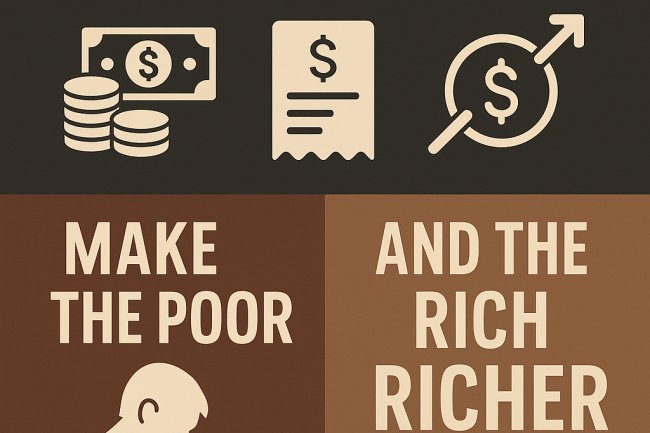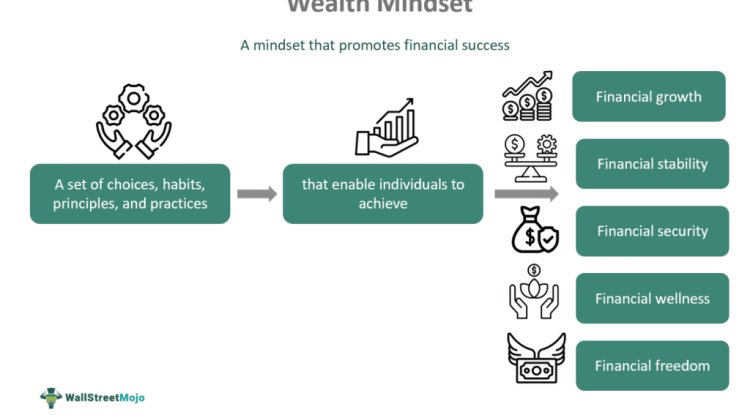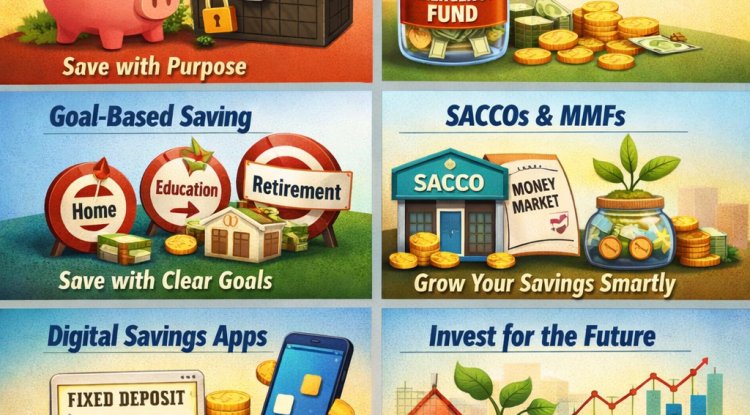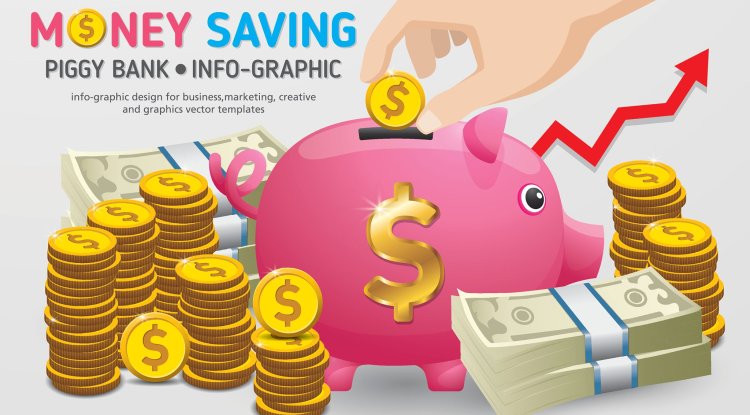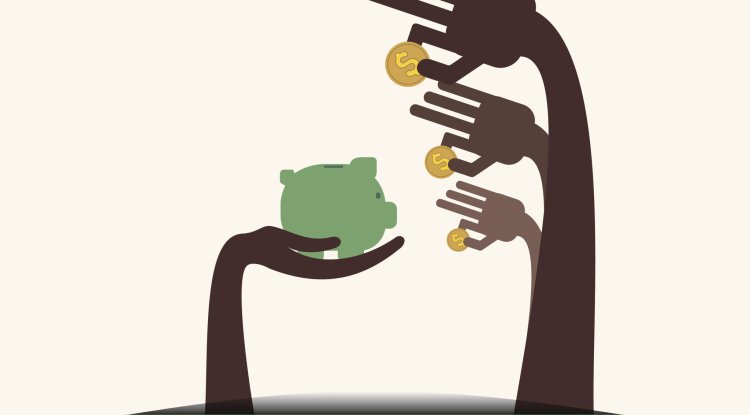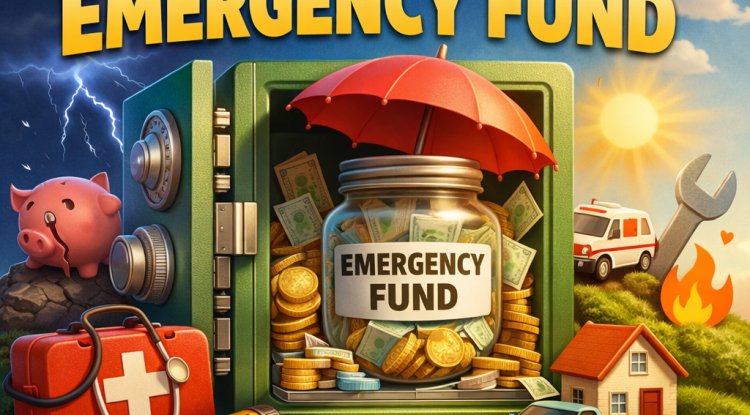Debt Management and Credit Wisdom: The Roadmap to Financial Freedom
Learn how to manage and eliminate debt smartly using proven methods like the snowball and avalanche strategies. Understand good vs bad debt, improve your credit score, and use credit to build business wealth — not destroy it.
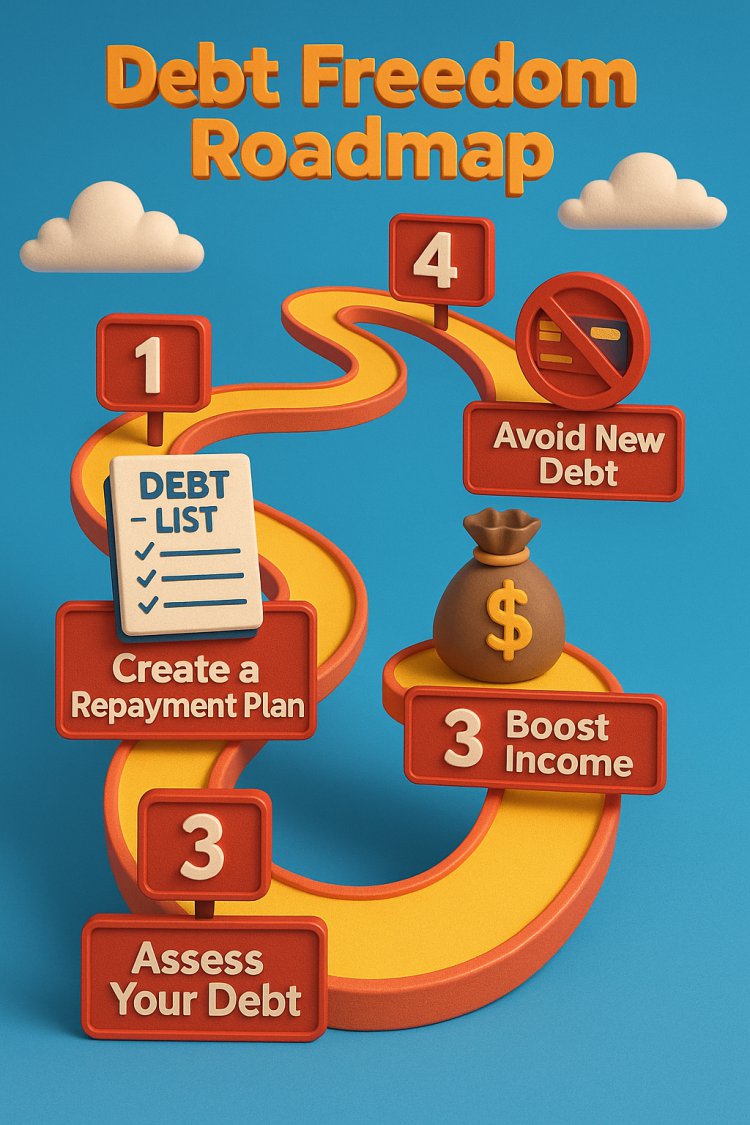
Debt Management and Credit Wisdom: The Roadmap to Financial Freedom
Introduction: The Weight of Debt and the Promise of Freedom
In today’s fast-paced world, debt has become almost unavoidable. From student loans to credit cards, mortgages, or even mobile loans, borrowing can either accelerate your financial growth—or trap you in a cycle of dependency.
But the truth is this: debt is not the enemy. Mismanaged debt is.
Financial freedom doesn’t come from avoiding debt altogether; it comes from mastering it—knowing when to borrow, how to repay strategically, and how to use credit as a stepping stone toward wealth.
This guide breaks down the essence of Debt Management and Credit Wisdom—practical tools, mindsets, and systems to help you pay off debt faster, build your credit reputation, and leverage it to grow your business and wealth.
1. Understanding Debt: The Good, the Bad, and the Ugly
Good Debt vs Bad Debt
Not all debt is created equal.
-
Good Debt: This is debt that helps you acquire assets or increase your future income. Examples include a mortgage on a rental property, student loans for a marketable skill, or business loans that generate revenue.
-
Bad Debt: This type drains your wealth instead of building it. Think of high-interest credit cards, payday loans, or consumer financing for luxuries you can’t afford.
The key difference lies in return on investment (ROI). If your debt creates long-term value or income, it’s good. If it only satisfies short-term wants or depreciates in value, it’s bad.
The Psychology of Borrowing
People often borrow emotionally, not logically. We buy to feel successful, fit in, or “reward ourselves.” Understanding your spending triggers—stress, status, or instant gratification—is the first step toward freedom.
2. The Science of Getting Out of Debt
Eliminating debt isn’t about luck—it’s about system and discipline. Two proven strategies dominate financial planning: The Snowball Method and The Avalanche Method.
The Snowball Method (Momentum Over Math)
This method focuses on emotional victories.
-
List all your debts from smallest to largest.
-
Pay minimum payments on all except the smallest.
-
Attack the smallest debt aggressively.
-
Once paid off, roll that payment into the next smallest.
Each small victory builds momentum and confidence—similar to a snowball rolling downhill.
Example:
-
Credit Card: $300
-
Mobile Loan: $1,000
-
Student Loan: $5,000
Pay off the $300 first. Once cleared, use that freed-up cash flow to attack the $1,000, and so on. You’ll stay motivated because you see visible progress.
The Avalanche Method (Logic Over Emotion)
This strategy focuses on minimizing interest.
-
List debts by interest rate, from highest to lowest.
-
Pay minimums on all but the one with the highest rate.
-
Tackle the highest-interest debt first.
You’ll save more money over time because you’re cutting interest losses early.
Example:
If you have a 25% credit card debt and a 10% personal loan, pay off the card first—even if it’s larger.
Which One Is Better?
-
Snowball keeps you motivated.
-
Avalanche saves you money.
For most people, starting with Snowball builds the discipline needed to later transition into the Avalanche.
3. Credit Score Education: Your Financial Reputation
Your credit score is your financial fingerprint. It determines your access to opportunities—loans, rentals, even job offers in some industries.
What Affects Your Credit Score
| Factor | Weight | Description |
|---|---|---|
| Payment History | 35% | Pay on time, every time |
| Credit Utilization | 30% | Keep usage below 30% of your limit |
| Length of Credit History | 15% | Older accounts improve score |
| Credit Mix | 10% | A variety of loans and cards show responsibility |
| New Credit | 10% | Too many applications lower your score |
How to Improve Your Credit Score
-
Pay bills on time – Even one late payment can drop your score drastically.
-
Keep balances low – If your card limit is $1,000, try not to exceed $300.
-
Don’t close old accounts – They contribute to your “credit age.”
-
Dispute errors – Regularly check your report for mistakes.
-
Limit new credit applications – Each inquiry can lower your score slightly.
The Credit Cycle of the Wise
Responsible credit users use it like a lever, not a crutch. They borrow strategically, repay promptly, and monitor constantly.
The goal isn’t to avoid credit—it’s to use it without being used by it.
4. Using Credit to Build Business, Not Destroy Wealth
The Entrepreneur’s Mindset
Credit is one of the most powerful tools for business growth—when used correctly. It can help you launch, scale, or stabilize cash flow. However, many entrepreneurs misuse it and drown in debt.
Smart Business Credit Principles:
-
Separate personal and business credit. Always have different accounts.
-
Use credit for assets, not expenses. Buy inventory, not iPhones.
-
Invest borrowed money into revenue-generating activities.
-
Negotiate better credit terms as your business grows.
-
Build relationships with financial institutions. Loyalty can secure better financing deals later.
Leveraging Credit for Growth
Successful entrepreneurs often start small—using business credit cards or short-term loans to fund marketing, equipment, or expansion.
But they repay fast and track ROI per shilling/dollar borrowed.
5. Common Debt Traps to Avoid
In developing economies like Kenya and Nigeria, financial traps are everywhere. They promise quick relief but often lead to long-term pain.
1. Mobile Lending Apps
Apps like Tala, Branch, and Fuliza offer convenience—but at interest rates as high as 15–25% per month.
Borrow only if it’s for productive reasons—like restocking your business—not consumption.
2. Credit Cards Misuse
Many see credit cards as “extra income.” They’re not. They’re loans. Always clear your balance monthly. Minimum payments keep you in lifelong bondage.
3. Salary and Logbook Loans
These are modern-day financial shackles. They offer fast cash but eat up future income.
Ask yourself: “Will this loan make me money or just move my problems to next month?”
4. Buy Now, Pay Later (BNPL)
These platforms create the illusion of affordability but encourage overspending. If you wouldn’t buy it in full cash, don’t buy it on installments.
6. Step-by-Step Debt Freedom Plan
-
Assess Your Debt Reality – Write down every debt, no matter how small.
-
Create a Debt Snowball or Avalanche Strategy.
-
Stop Adding New Debt. Freeze your cards or delete lending apps.
-
Build a Mini Emergency Fund (Ksh 10,000 / $100). It keeps you from borrowing again.
-
Increase Your Income. Freelance, sell unused items, or start a side hustle.
-
Negotiate Lower Interest Rates. Banks and lenders may adjust terms for consistent payers.
-
Celebrate Milestones. Reward yourself (wisely) as you clear each debt.
7. Biblical and Faith-Based View on Debt
As a Christian financial advisor, I believe wisdom on debt isn’t just practical—it’s spiritual.
The Bible warns:
“The borrower is servant to the lender.” — Proverbs 22:7
Debt binds your financial destiny. Freedom begins with stewardship—managing resources God has entrusted to you. When you manage money faithfully, you invite divine favor and increase.
Faith Principles:
-
Debt is not sin—but a sign of lack of planning or patience.
-
God’s system encourages saving before spending.
-
Generosity, not greed, leads to abundance.
Financial freedom isn’t just about numbers—it’s about trusting God with your plans and acting with wisdom.
8. The Road to Financial Freedom
True freedom isn’t living without bills—it’s living with peace.
When you manage debt wisely, you regain control over your choices. You stop working for lenders and start building wealth for your future generations.
Your journey to freedom starts with one decision:
Choose to control your debt before it controls you.
Action Steps Summary
| Step | Goal | Tool/Method |
|---|---|---|
| Identify debts | Know the full picture | Debt list & tracking sheet |
| Choose a method | Strategy | Snowball / Avalanche |
| Boost income | Free up repayment cash | Side hustle / business |
| Improve credit | Build financial reputation | On-time payments |
| Avoid traps | Stay debt-free | Discipline & planning |
Conclusion: From Burden to Breakthrough
Debt is not your destiny. It’s a temporary condition that can be overcome with clarity, courage, and consistency.
Every financial giant started with discipline—cutting costs, paying off debts, and reinvesting wisely. When you commit to learning, managing, and applying credit wisdom, you don’t just clear your balance sheets—you rewrite your financial story.
Your financial freedom starts today.
What's Your Reaction?







